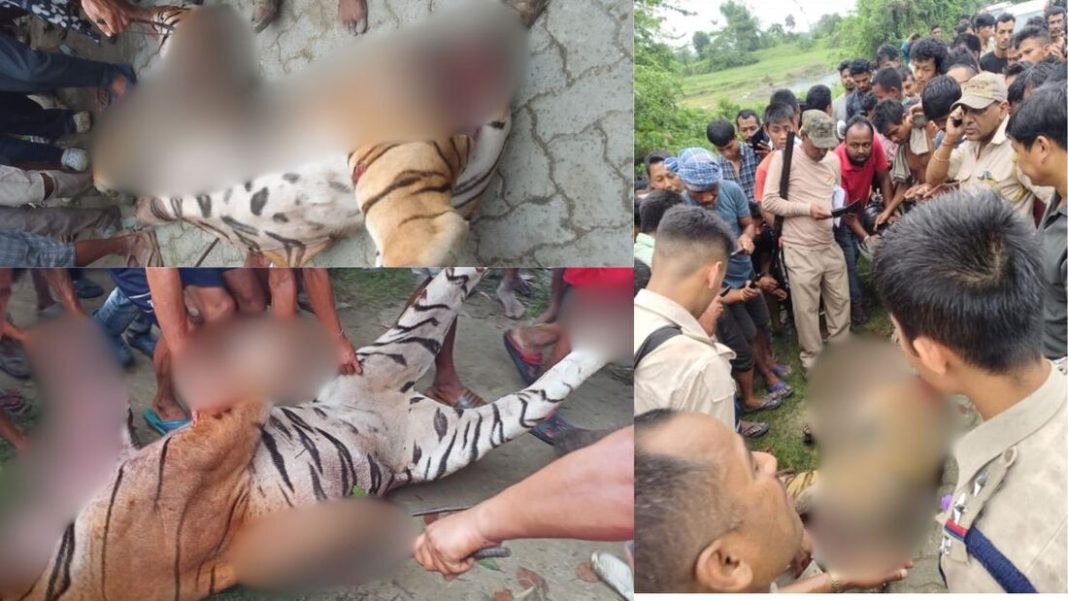
Guwahati, May 22: In a grim reminder of the growing conflict between humans and wildlife, a Royal Bengal Tiger was brutally killed by villagers in Assam’s Golaghat district on Thursday. The killing carried out with machetes and sticks, exposes both the fear and the failure that define Assam’s struggle with wildlife conservation.
The attack occurred in Borbeel, under the Dusutimukh Gaon Panchayat in the Khoomtai Revenue Circle. According to the forest department, the tiger was mutilated before officials could arrive. By the time help came, it was too late. Crucial body parts—including the nose, nails, and sections of the skin—had been stripped from the animal, likely for illegal sale.

One person has been arrested in connection with the killing. But this tragedy didn’t come without warning.
On May 4, environment journalist and activist Apurba Ballav Goswami had informed the Golaghat Divisional Forest Officer (DFO) about the tiger’s presence. The DFO also alerted authorities at the Kaziranga National Park and Tiger Reserve (KNPTR). Despite this, no action was taken to tranquillize the animal or relocate it to safety.
This lack of timely intervention has now led to a loss that goes beyond the death of a single animal. It reflects a failure of systems meant to protect both wildlife and rural communities.
The tiger’s carcass was sent for post-mortem and later cremated, but the real cost may lie in the precedent this sets—one where fear and misinformation turn villagers into poachers, and forest authorities watch too long before acting.
As human settlements expand and fragment natural habitats, cases like this raise an urgent humanitarian question: How do we protect both lives and livelihoods without sacrificing our vanishing wildlife?

Activist Apurba Ballav Goswami squarely blamed the Kaziranga National Park and Tiger Reserve (KNPTR) authorities for failing to act in time to save the Schedule I protected species. “Even after the Golaghat DFO alerted them, they didn’t come to rescue the animal or move it back to its natural habitat,” Goswami said.
He warned that unless authorities build trust with local communities and respond swiftly, “the cycle of fear and killing will only continue.”





